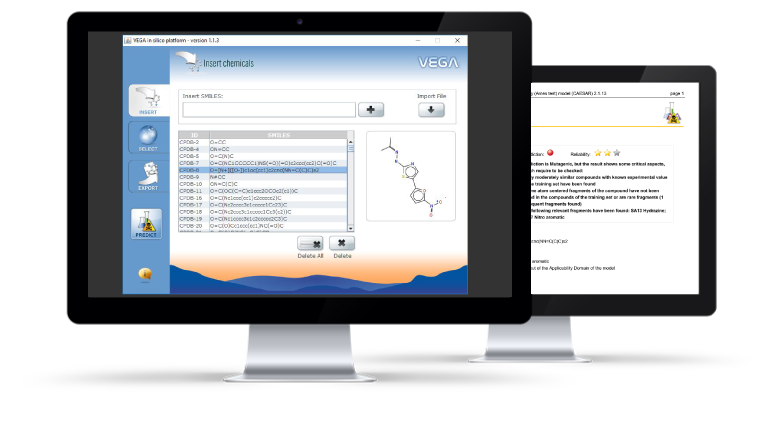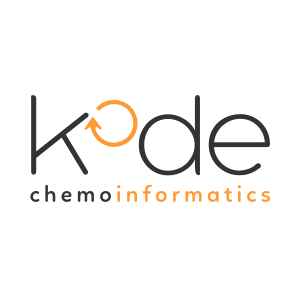Here you can download in Silico models (QSAR and read across) for specific properties, or programs to build up your own model

- Description
Allows you to develop a model to predict continuous values for properties such as carcinogenicity and fish toxicity.
CORAL breaks the chemical structures of the compounds in the training set into small components (SMILES attributes), based on the SMILES structure in the canonical form. The set of compounds are split into a subtraining set, a calibration set and a test set, in order to avoid overtraining. The inclusion of parameters such as the number of epochs, and rare SMILES attributes, enables the optimisation of the model.
- Last Release
- January 31, 2017
- Description
A collection of tools for chemoinformatics. These software use the features developed inside the VEGA application core libraries, like molecule conversion, manipulation, SMARTS matching, similarity calculation.
VEGA-based tools has been developed by Kode s.r.l. in collaboration with Istituto Mario Negri.
The In-Silico Tools are freely available for download, upon registration, at Kode website.
- Last Release
- January 31, 2017
- Official Website
- Visit the official website
- Description
The software has been developed for building counter-propagation artificial neural network (CPANN) models and self-organising maps (SOM).
For the modelling, the user provides descriptor values and target/endpoint values as input for the program.
The SOM tool is freely available for download at National Institute of Chemistry Slovenia website.
- Last Release
- March 9, 2017
- Description
QSARpy v1.0 is a tool to develop quantitative models based on dissimilarity
QSARpy is an evolution of SARpy. It breaks the molecules of the training set and extracts modulators, fragments associated to a difference in the property/activity value. First, QSARpy verifies if the molecule to predict and one of the molecules of the training set share part of the structure, and one or more modulators can explain the differences between them. Then, QSARpy calculates the property/activity for the target adding the modulator(s) value to the value associate to the training set molecule.
- Last Release
- December 21, 2018




